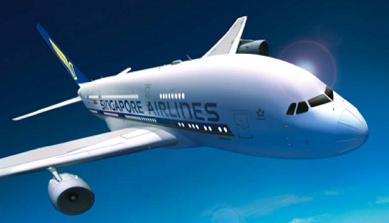
OOPS, Credit Suisse has an ‘underweight’ rating on Singapore for 2009.
Singapore's real GDP is expected to contract 2.8% in 2009, according to its market strategy report dated Jan 14.
The good news, though is that the broker also foresees the economy bottoming out in 2Q of this year. That's just a couple of months away!
To ride the market upturn, investors should place more emphasis on defensive sectors such as telecom and transport, according to the report.
In Asia ex-Japan, Singapore’s economy is the most exposed to the global economic downturn, and Credit Suisse estimates Singapore’s net exports contribute as much as 60%-70% of GDP.
Because of this, financial and business services are likely to suffer the most, followed by transport and wholesale trade sectors as global financial institutions continue to consolidate and world trade contracts.
M1
Being dependent on domestic consumption, the telecom sector is less exposed to the global downturn and Credit Suisse prefers M1 due to its attractive valuation and sound balance sheet.
Based on last Friday's closing prce of S$1.52 per share, M1 offers about 13% of FY09E free cash flow yield and 11% FY09E dividend yield.
M1 is also a key beneficiary of the Next Generation Network (NGN), a key telecom development that enables one network to transport all information and services – including voice, data and video.
Furthermore, M1 owns no legacy from fixed-line networks, which is why the new NGN will not cannibalize any existing cash flow.
The launch of a retail service provider business is set to increase M1’s medium-term earnings CAGR, as well as improve the defensiveness of its existing cellular business by bundling and tying in customers to more than one product, says the broker.
The cellular phone service provider reported last Fri that its 4Q08 net earnings contracted 3% year-to-year to S$36.6 million, which is above consensus estimates of S$35 million.
A 7.2 cent final dividend was declared, bringing FY08 dividend yield up to 8.8%.
SIA
Should demand improve on the back of a global economic recovery, Credit Suisse believes the airline sector will outperform given its nature as a high beta early cycle play.
For airlines, traffic demand, revenue per passenger mile and oil prices are the key data points to watch out for.
Among Asian airlines, Credit Suisse prefers SIA given its strong profitability record in previous crises like the FY91-92 global recession, the FY99-00 Asian financial crisis, FY02 Sep 11 attack and FY04 SARS.
Its strong balance sheet (net cash of S$2.90 per share as at end of September) will also help it to weather this down cycle.
Recent story: DMG: Overweight healthcare, REITS, telecoms, land transport







